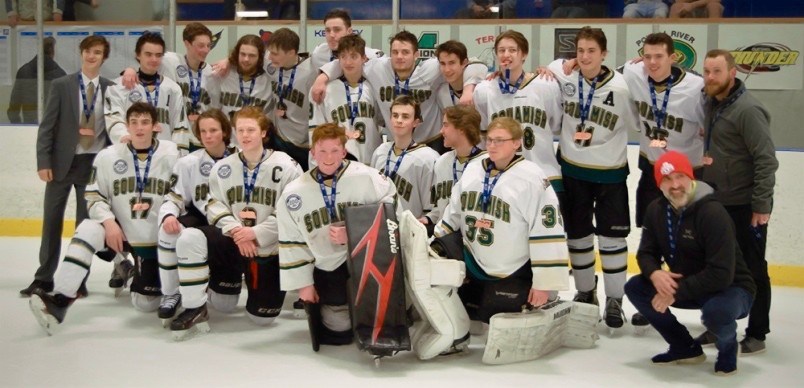The minor hockey associations in both Squamish and Whistler have worked closely in recent years to help ice teams in older age groups that neither would be able to put together individually.
But both recently voted to implement changes for their midget (17-and-under) and bantam (14-and-under) A-level programs beginning with the 2019-20 season.
The two associations, which had recently combined to run teams in those programs, both separately voted to bring those programs under the administration of BC Hockey through its BC Hockey Zone Program, which allows players to join a team from a wider boundary to compete at higher levels. The provincial organization has done similar work in other jurisdictions around B.C.
"What's happened in the past when we've had shared teams is you would each pay your own association and the executive from each association would have to work really hard on figuring out how to share the costs, working out schedules," said Whistler Minor Hockey Association (WMHA) president Anita Cote. "We had a lot of issues in the last couple years making it work between the needs of the two communities.
"BC Hockey agreed to come in. Originally, they were just helping facilitate our discussions, and then it became 'Why don't we operate it?' That takes away the politics and the time and management needed."
In particular, Squamish and Whistler have shared a midget team in recent years, with the associations generally alternating which one hosted from season to season. Last season, the associations also agreed to share a team at the bantam level, though it fell apart in the late stages.
"We want to work together, but obviously, both associations have a little bit of a different perspective. We want to do what's best for the kids in the corridor, so that's how (BC Hockey) got involved," Cote said.
Squamish Minor Hockey Association (SMHA) president Emma Moses said while there have been successes when Whistler and Squamish work together, there have also been challenges. With the provincial association taking the lead with these particular programs, she's expecting a smoother flow.
"They're two completely different organizations trying to marry teams. That's sometimes difficult with rotating board members and different visions, so the reason for it was, with the support of BC Hockey, we would ensure the longevity of shared teams, rather than have it dependent on the board of the season," she said.
In addition to handling constant change, Moses noted balancing ice time in Squamish and Whistler and considering travel arrangements for the parents involved is a factor.
Another benefit, according to Cote, is that with a combined player pool, more kids will get the opportunity to stay in rep hockey either at the A1 or A2 levels.
"The goal is to have two teams at each division, an A1 and an A2, and then you'd have your house teams," she said. "What happens in small communities is one year, a first-year kid might not make the rep team—or maybe they do get on—but sometimes, year to year, you don't know who's going to get on these teams.
"In the city, they can have four or five teams at a given age group, so if you don't make the top team, you've got a spot on the next team and you can play competitive hockey."
Cote said the Whistler association is not considering any changes at lower levels, as the player pools are large enough to keep teams in house in the younger age groups.
Cote said the WMHA did a cost analysis before voting on the change, determining that the majority of registration fees go to cover ice time, officials and coaching.
"It doesn't really affect our bottom line," she said.
Moses said while the change is expected to make Squamish's registration a bit more expensive, the board felt the trade-off is worthwhile.
"It does come with a slight increase in costs, but that actually comes with more resources and a higher calibre of coaching. We now have the experts running it, rather than local boards, so the benefits are definitely worth the cost," she said.
Cote added the new arrangement is already up and running, as tryouts were held earlier this month.
BC Hockey spokesman Keegan Goodrich said in an email that the organization runs the Zone Program to benefit players as well as minor hockey associations (MHA).
"BC Hockey is helping administratively on those ends but work with each MHA to try and make sure ice times are split (when possible) between the two centres. But players register through our zone program registry, and assist in hiring the staff. This allows MHA's to remain focused on grassroots programming, recreational-level hockey and try hockey programming," he wrote.
For the original article, go here.



